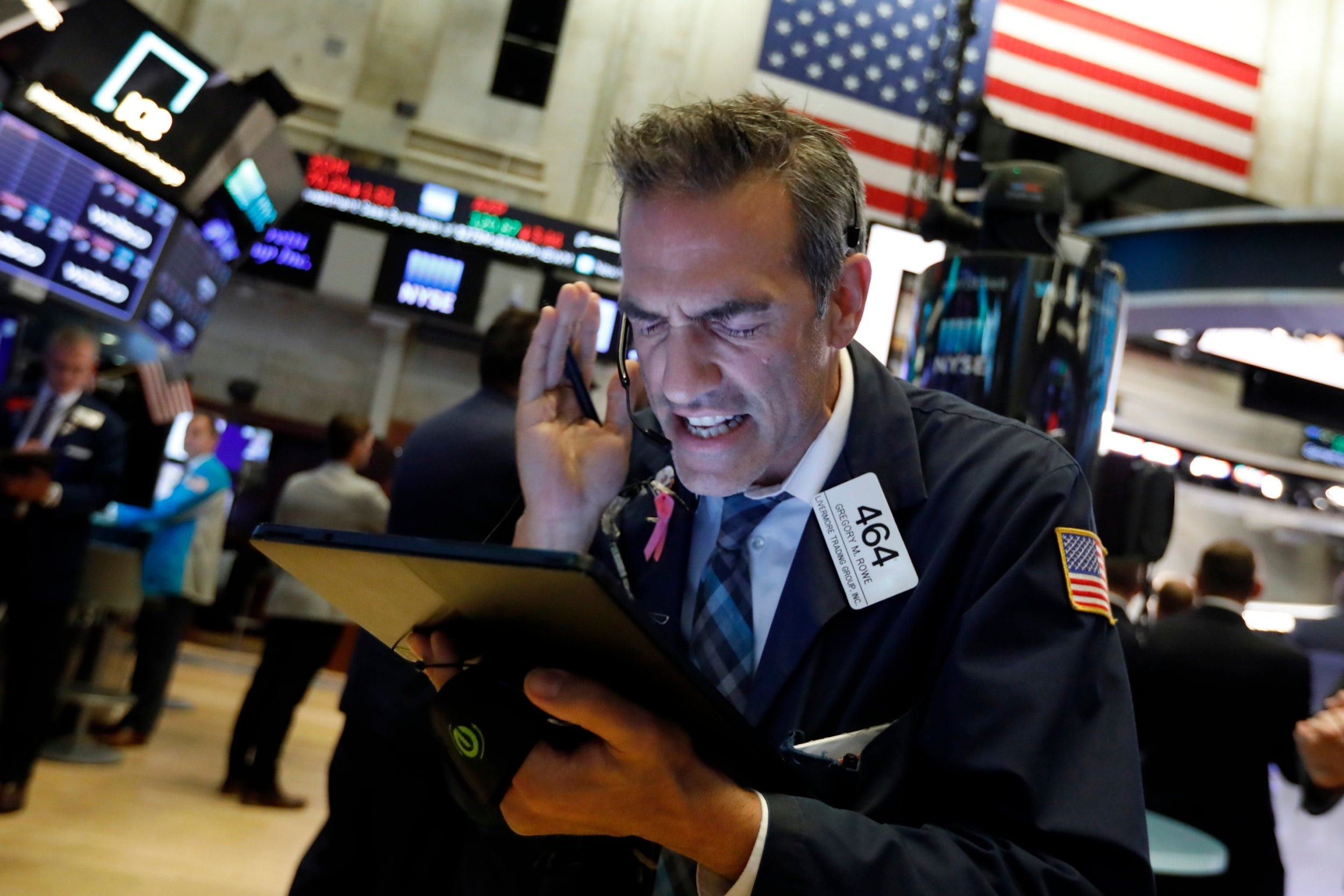Trump blames the media for talking down the US economy, but can a bit of pessimism really spark a recession?
Remember the global financial crisis? That happened even though – and arguably because – hardly any economists, let alone journalists, warned of its coming


Last week Donald Trump, via his preferred communication channel of Twitter, renewed his attacks on the media for what he called their attempts to create a US recession. On the other side of the Atlantic, whenever Remainers point out the actual or probable economic damage from leaving the EU, Brexit supporters accuse them of trying to “talk down” the economy.
Is it true that talking about a possible recession can become a self-fulfilling prophecy? Can a healthy dose of optimism alter economic reality?
As far back as in the 1930s, John Maynard Keynes wrote about a link between people’s confidence and their financial decision making. He argued that decisions to open a mine or build a factory cannot be based on what is realistically very limited knowledge of likely long-term returns. Instead, they “can only be taken as a result of animal spirits” or, in other words, optimism.
Economics and finance researchers have since explored the importance of expectations and their implications for the wider economy.
Two of the more recent papers come to somewhat different conclusions. Research published in 2017 by Fabio Milani at the University of California in Irvine looked at sentiment, defined as excessive optimism or pessimism about the future state of the economy. He found that changes in sentiment are responsible for more than 40 per cent of business cycle fluctuations in the US.
In a 2014 paper on a similar subject, Juliane Lischka at the University of Zurich took it one step further, examining how economic news affects sentiment and how sentiment then feeds into behaviour. She, in contrast, concluded that economic news “barely” influences the development of the economy.
“News does not have the power to shift public economic expectations without the ‘support’ from real‐world experiences,” Lischka wrote. She also said that not just economic news but expectations too barely affect consumer behaviour.
How much ordinary people spend and why is really important to economies such as the US and UK, which are reliant on consumer spending. And although it’s not always clear which affects which, consumer pessimism is correlated with economic downturns.
For example, Britain’s closely watched as GfK Consumer Confidence Index started declining sharply in late 2007, reaching a low in mid-2008 and recovering only slightly by the middle of 2009. That overlapped with the UK’s last recession, which started in April 2008 and ended in June 2009.
Kelli Lanier, an economics lecturer at Emory University in the US, offers a reason why negative news on the economy may not translate into predictable actions by consumers. “You’d have one camp that will squirrel away money for a rainy day and then you have others that will choose to spend it all now,” she told the Marketplace podcast.
Personal financial circumstances also determine how responsive individuals are to bad economic news. “What do they have in their bank account and what do they get in terms of payroll every month?” said Bart van Ark, chief economist at think tank The Conference Board, speaking on the same podcast.
This would help explain a glaring discrepancy between the sub-components of the GfK index: while UK consumers’ views of the economic situation have been deeply negative for months, they have been feeling moderately upbeat about their personal finances and about making major purchases.
Back at the University of Zurich, Lischka found that the tone of economic news does, to some degree, affect companies’ decisions, especially on investment. That brings her conclusion closer to Milani’s finding that sentiment plays a bigger role in investment than in consumption.
The recent behaviour of British companies supports this. Business investment has stagnated since 2016, and last week Mark Carney, the Bank of England governor, said: “There is overwhelming evidence that this is a direct result of uncertainties over the UK’s future trading relationship with the EU”. “Uncertainties” could be replaced with “lack of confidence” and there you have your sentiment – negative in this case.
But are journalists to blame for the uncertainties? Clearly not, and businesses would be aware of the many questions that Brexit raises whether or not journalists wrote about them.
And remember the financial crisis that triggered recessions around the world? Well, that happened even though – and arguably because – hardly any economists, let alone journalists, warned of its coming. Here was a sudden evaporation of investor confidence driven by the hard financial realities of a crumbling subprime mortgage market. No one had “talked” the world into a crash in the first place.
The bottom line is that sentiment matters – but nowhere near as much as the reality that Trump and the Brexiteers might rather ignore.
Join our commenting forum
Join thought-provoking conversations, follow other Independent readers and see their replies
Comments
Bookmark popover
Removed from bookmarks